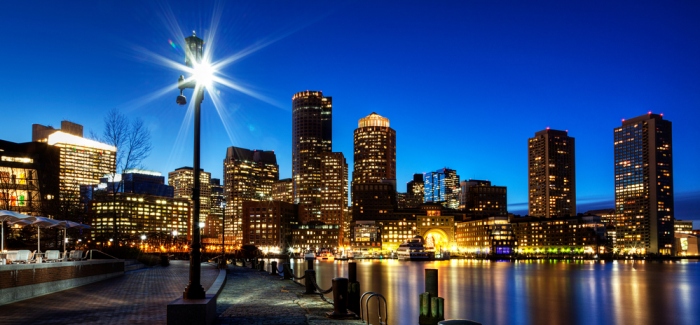Oklahoma is part of the US Bible Belt, a Great Plains state, and perhaps best known for the musical of the same name - but what's it like to study here?
Lying largely in the Great Plains region – an expanse of prairie that runs through the center of the US – Oklahoma is often overshadowed by neighboring states.
Perhaps the primary association with the state for many people is the musical which shares its name. It is also known for being a part of the ‘Bible Belt’ – a region of the US famous for its conservatism and evangelical Christianity.
But there’s more to this state than singing cowboys, Christianity and grassland. For one thing, it is rich with Native American history and culture. Over 25 Native American languages are still spoken in the state, and nearly forty tribes are headquartered in Oklahoma.
Despite the dominance of Great Plains, the state can also offer a lot of geographical variety – with no fewer than 11 different ecological regions. Whether its mountains, semi-arid plains, prairies or forests you’re looking for, Oklahoma can deliver. Fans of nature, therefore, will find plenty of interest in this medium-sized state – but perhaps steer clear if you don’t like it hot!
The two largest cities in the state are Oklahoma City – the state capital – and Tulsa, which are collectively the home of nearly two thirds of the state’s population.
The former is a thriving economic hub, with many businesses having set up shop in the city (oil is one of the biggest industries). It also has enough museums and galleries to keep curious minds interested; many of them, such as the National Cowboy & Western Heritage Museum focusing on the region’s history. As you’d expect from a large urban hub, there are plenty of music venues, restaurants and bars too.
The latter is known for its art deco architecture and its old West charm combined with an increasing cosmopolitanism. In Philbrook Museum, it is home to one of the US’s most celebrated art galleries and it hosts numerous film and music festivals throughout the year. It is also thriving, and manufactures over half of Oklahoma’s exports.
 Oklahoma: Fast facts
Oklahoma: Fast facts
• Oklahoma is home to 3.8 million people
• The world’s first parking meter was installed in Oklahoma in 1935
• No other state has as large a Native American population as Oklahoma – around 250,000
• As well as the National Cowboy & Western Heritage Museum, Oklahoma City is also home to the American Banjo Museum
• Oklahoma suffers from a high frequency of tornadoes, and is considered to be part of ‘Tornado Alley’
• The name of the state comes from the Choctaw Native American tribe’s language, and means ‘red people’
• Famous Oklahomans – or Okies – include actor and all round hard man Chuck Norris, actor Brad Pitt, folk musician Woodie Guthrie and author Ralph Ellison
• Boise City, Oklahoma was the only city in the contiguous United States to be bombed in World War II…by American pilots on a practice run! (no one was killed)
 Top universities in Oklahoma
Top universities in Oklahoma
Within the top 450 in the 2011 QS World University Rankings, the University of Oklahoma is the state’s only ranking university.
Based in Norman – part of the metropolitan area of Oklahoma City – the university is the flagship institution in the state’s public system, and is known for its unique ‘Cherokee Gothic’ architecture.
It is classed a high research activity university by the Carnegie Foundation and is a Space Grant University. The Gaylord College of Journalism and Mass Communication’s journalism course is the first in the US to be designated an Apple Distinguished Program, helping to maintain the university’s reputation as being digitally advanced.
At present over 30,000 study at the university, which offers over nearly 400 programs, around 150 are at undergraduate level.
Oklahoma State University is another prominent pubic institution, with over 20,000 students enrolled at its largest campus in Stillwater. Though it does not make the 2011 QS World University Rankings, it is a Land and Sun Grant University and is classed a research university with high activity.
More Great Plains states:





